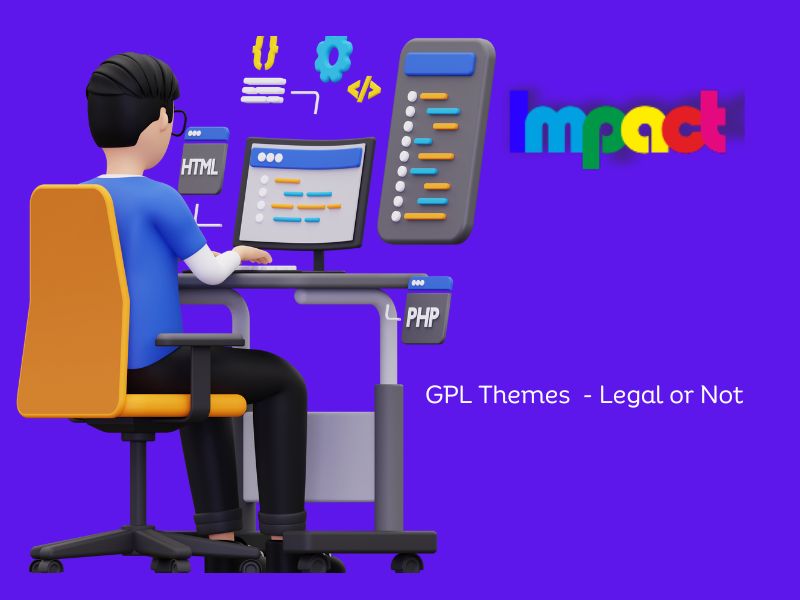WordPress is one of the most popular Content Management Systems (CMS) globally, powering over 40% of the internet. With its ease of use, flexibility, and customizability, WordPress has become a top choice for bloggers, businesses, and developers. However, some users may be uncertain about the legal use of WordPress and the licenses that govern it.
One such license is the GNU General Public License (GPL), which applies to WordPress and its associated products. In this article, we’ll provide detailed insights into what GPL is, how it affects WordPress, and whether it’s legal to use.
Table of Contents
What is GPL in WordPress?
GPL is a free, open-source license that allows users to modify and distribute software without any restrictions. It is a type of copyright license that gives users the freedom to use, share, and modify the software, as long as they follow certain conditions.
WordPress is licensed under the GPL, which means that anyone can use, modify, and distribute it freely. However, any derivative works of WordPress, such as plugins or themes, must also be licensed under the GPL. This requirement ensures that WordPress and its related products remain open-source and free for everyone to use.
Get 20% additional discount through here Buy Now!>Impact of GPL on WordPress
The GPL license has had a significant impact on WordPress and its community. Here are some of the ways that GPL has influenced WordPress:
- GPL promotes collaboration: The GPL license encourages collaboration and sharing, which has led to the development of a vibrant community of WordPress users and developers.
- GPL ensures accessibility: The GPL license ensures that WordPress remains accessible to all, regardless of their financial or technical resources.
- GPL protects user freedoms: The GPL license protects the freedom of users to use, modify, and distribute WordPress and its related products.
Is it legal to use GPL in WordPress?
Yes, it is legal to use GPL in WordPress. The GPL license is a widely used and respected license that has been upheld in many legal cases. The license ensures that WordPress and its related products remain open-source and free for everyone to use.
However, it’s essential to note that the GPL license applies to the software itself, not to the content that you create with it. For example, if you create a website using WordPress, the content on that website is not subject to the GPL license.
Frequently Asked Questions (FAQs)
Q: Can I sell WordPress plugins and themes?
A: Yes, you can sell WordPress plugins and themes. However, any derivative works of WordPress, such as plugins or themes, must also be licensed under the GPL.
Q: Can I modify GPL-licensed software and distribute it under a different license?
A: No, you cannot modify GPL-licensed software and distribute it under a different license. Any derivative works of GPL-licensed software must also be licensed under the GPL.
Q: What happens if I violate the GPL license?
A: If you violate the GPL license, the copyright holder may take legal action against you. Violating the GPL license could result in monetary damages, injunctions, and other legal consequences.
Also Read
Conclusion
GPL license is a valuable tool that ensures the free and open-source use of software like WordPress. As one of the most widely-used CMS platforms on the web, WordPress’s licensing under the GPL has had a significant impact on the entire web development community. The license promotes collaboration and accessibility while protecting user freedoms. So, if you’re using WordPress or developing plugins and themes for it, it’s important to understand and adhere to the GPL’s terms and conditions.
The GPL license has had a significant impact on WordPress, as it has made WordPress more accessible, collaborative, and secure for users and developers. It has encouraged the development of an extensive ecosystem of themes and plugins that have significantly contributed to the growth and popularity of WordPress. The license has also ensured that the software remains free and open-source, allowing users to modify and distribute WordPress without any restrictions. Ultimately, the GPL license has played a crucial role in making WordPress one of the most widely-used content management systems in the world.
